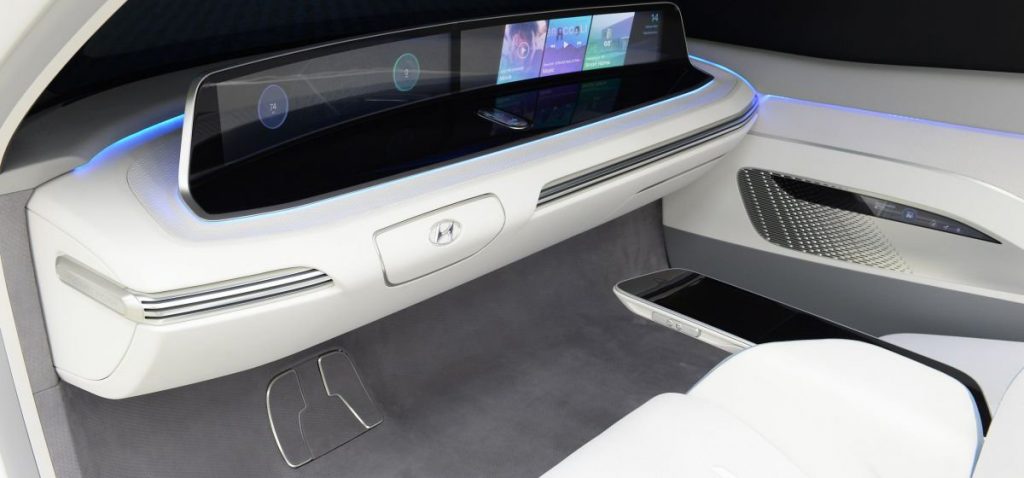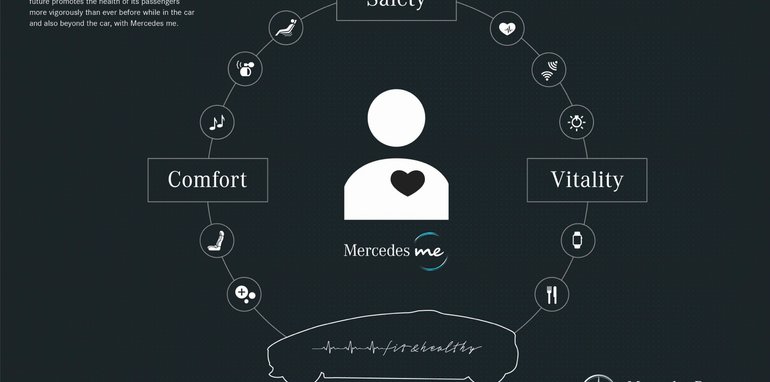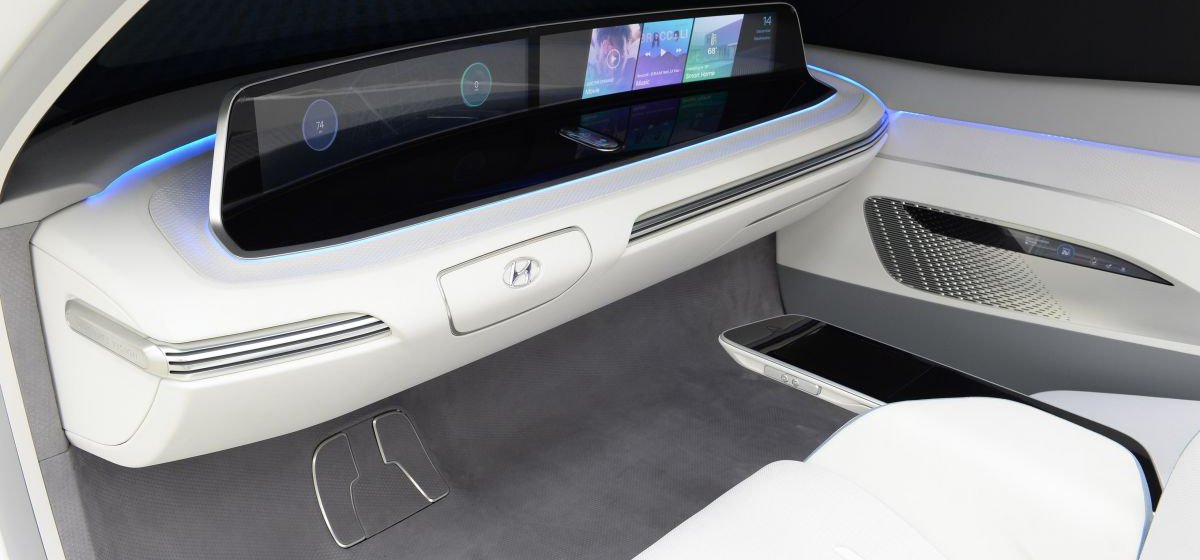Mobile health (mHealth) has been long defined as care (broadly defined) delivered via mobile communications platforms, such as smartphones, text phones, and tablets. This week at CES, the automobile joins these consumer technologies based on the concepts and demos presented by several auto manufacturers at #CES2017 in Las Vegas.

The most far-reaching mobile health scenario was developed by Hyundai, unveiled as the Health + Mobility Cockpit. The innovation was featured in the Las Vegas Convention Center in an immersive virtual reality room. The concept car is embedded with sensors, which are designed to read the driver’s levels of stress, alertness and the negative effects of driving. Lighting, scents (à la aromatherapy), and other tailored “mood bursts” are deployed based on the sensors’ readings: for example, if a driver lacks alertness, a peppermint scent might be released in the car as an energy-boosting scent. If a driver is stressed, eucalyptus or lavender could be used. The various mood burst responses address posture, scent, light, temperature and sound (think: music, podcasts or news). The press release from Hyundai can be found here.

Mercedes-Benz is working with Philips on a research project in auto-mobile health. The Mercedes-Benz Fit & Healthy Project is a data-driven approach to empowering a driver with their health data, in and beyond the car itself. Philips has launched a Health Watch which includes heart rate monitoring. An app brings this information together with other personal health information in a connected health data ecosystem. “This could transform the car into the ultimate mobility and wellbeing device,” according to the company’s press release. More information on Philip’s growing health ecosystem is on their list of CES 2017 announcements. Automotive World covered the Mercedes-Benz CES 2017 developments.

Nissan sponsored a research study into the future car industry in Europe, titled Freeing the Road: Shaping the Future for Autonomous Vehicles. Beyond many economic benefits cited in favor of autonomous cars, health benefits could include reducing driver stress and car accidents that lead to trauma and, at worst, mortality.
While it’s early days for connected cars in health, we can expect this expanded definition of “mobile health” to evolve over the next few years. Expect health and wellness to be delivered in our autos as an extension of home health: note that Chrysler’s new Portal design considers the car, “the third space,” beyond our homes and workplaces.





 Interviewed live on BNN Bloomberg (Canada) on the market for GLP-1 drugs for weight loss and their impact on both the health care system and consumer goods and services -- notably, food, nutrition, retail health, gyms, and other sectors.
Interviewed live on BNN Bloomberg (Canada) on the market for GLP-1 drugs for weight loss and their impact on both the health care system and consumer goods and services -- notably, food, nutrition, retail health, gyms, and other sectors. Thank you, Feedspot, for
Thank you, Feedspot, for  As you may know, I have been splitting work- and living-time between the U.S. and the E.U., most recently living in and working from Brussels. In the month of September 2024, I'll be splitting time between London and other parts of the U.K., and Italy where I'll be working with clients on consumer health, self-care and home care focused on food-as-medicine, digital health, business and scenario planning for the future...
As you may know, I have been splitting work- and living-time between the U.S. and the E.U., most recently living in and working from Brussels. In the month of September 2024, I'll be splitting time between London and other parts of the U.K., and Italy where I'll be working with clients on consumer health, self-care and home care focused on food-as-medicine, digital health, business and scenario planning for the future...